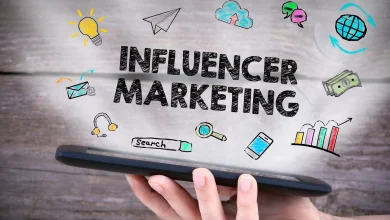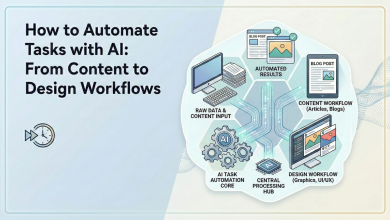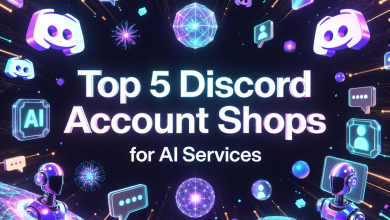
In 2024, the number of visitors not only returned to the levels seen before the pandemic but also exceeded them significantly. Industry data indicates that 46% of individuals in the United States Medical groups are currently treating more patients compared to the previous year. This is a clear indication of renewed progress in the provision of healthcare services.
At first glance, that appears to indicate advancement. An increasing number of patients are receiving medical attention. Access has increased. However, there is a compromise involved.
An increase in the number of patients results in a rise in follow-up appointments, an increase in documentation, a higher volume of messages through the patient portal, and an overall escalation in all related activities. For numerous practices, the pressure is unbearable. Burnout levels continue to be elevated, and employees are overextended, diverting attention away from patient care.
Despite having advanced technology intended to enhance efficiency, healthcare IT systems may still seem cumbersome when they require new logins, additional clicks, or another workflow to oversee. This is the reason why healthcare leaders are focusing on a new concept: agentic AI.
What does Agentic AI mean in Healthcare?
Agentic AI in healthcare refers to autonomous artificial intelligence systems that can assess medical data on their own, make clinical decisions, and take actions to improve patient outcomes without requiring ongoing human oversight.
Think of these AI agents as online healthcare providers that work endlessly, remember every detail, and can manage many patient cases simultaneously, constantly getting better with each interaction.
Unlike generative AI, which mainly creates text or images, agentic AI in the healthcare field plays a proactive role in making medical decisions. While ChatGPT can assist in creating medical reports, autonomous AI systems are involved in analyzing X-rays, suggesting treatments, and managing patient care across various departments.
The “agentic” aspect pertains to traits such as independence and adaptability, which are crucial in the healthcare field since each patient situation is unique and medical conditions can evolve rapidly.
What is the reason for Agentic AI, and why is this occurring at this moment?
A few years prior, the idea of AI possessing this level of independence would have been unimaginable. The technology was not available, and healthcare systems were overly separated, disorganized, and burdened by manual procedures. In numerous instances, they continue to be so. However, with more advanced tools and improved integration, artificial intelligence is now beginning to assist in reducing the administrative burden.
Here is an overview of the changes that are enabling the development of agentic AI tools:
- Electronic Health Records (EHRs) are increasingly transitioning to more accessible and cloud-based systems. They feature updated structures, enhanced interoperability, and tailored workflows designed to support urgent care, primary care, and various other medical practices.
- Providers are supplying real-time APIs that adhere to established standards, enabling AI agents to integrate with current systems seamlessly. AI models exhibit enhanced capabilities, effectively managing detailed clinical data and the complexities of real-world situations.
- In straightforward terms, the environment is now prepared for technology that supports rather than obstructs. The care teams are also prepared. Currently, 57% of doctors believe that the greatest benefit of AI is in reducing administrative tasks.
Agentic AI Use Cases in Healthcare
1. Clinical Decision Support Systems (CDSS)
Clinical AI agents analyze extensive patient information to suggest treatment plans based on evidence, taking into account the unique characteristics of each patient. These systems function as if the finest medical experts are readily accessible at all times for every patient decision.
2. Automated Analysis of Medical Images
Medical imaging artificial intelligence systems examine millions of X-rays, CT scans, and MRIs with remarkable precision, identifying illnesses that physicians commonly overlook. These independent systems analyze images quickly, prioritize critical situations, and deliver comprehensive diagnostic reports that assist doctors in making quicker and more precise treatment choices.
3. Managing Hospital Operations
Healthcare operations AI agents oversee intricate hospital logistics, including bed assignments, staff scheduling, inventory management, and patient transfers, while effectively managing resource limitations and addressing patient requirements. Companies like Azilen Technologies are building such intelligent operations frameworks that integrate predictive analytics and workflow automation to minimize delays and enhance overall hospital efficiency.These systems organize actions among departments to decrease wait times and enhance the quality of care.
The AI operations agent from GE Healthcare forecasts the number of patient admissions, enabling hospitals to modify staffing requirements and organize necessary resources effectively. The system decreases patient wait times by 30% and helps avoid overcrowding in emergencies.
4. Predictive Analysis for Disease Epidemics
Epidemic tracking AI technologies monitor global health data, social media activity, travel patterns, and environmental factors to predict disease outbreaks before they spread. These technologies provide early warnings that enable health authorities to implement measures to contain outbreaks and prevent pandemics.
BlueDot’s AI system forecasted the spread of COVID-19 nine days before the World Health Organization’s official announcement by examining data from airline passengers, disease monitoring reports, and news articles in various languages. The system recognized Wuhan as the origin of the outbreak and forecasted which cities would be impacted subsequently.
5. Patient Engagement and Virtual Health Assistants
AI-powered virtual health assistants offer round-the-clock medical advice, evaluate symptoms, and track treatment progress, simulating the presence of a personal physician at all times. These interactive platforms comprehend medical language, retain patient records, and deliver customized health recommendations.
Babylon Health’s AI system performs medical consultations via fluid conversations, posing pertinent inquiries related to the patient’s symptoms and medical background.
Reducing administrative load through automation enables healthcare organizations to allocate more resources to direct patient care while ensuring compliance with changing regulatory requirements. In summary, careful implementation and integration of agentic AI enable healthcare systems to fully harness the advantages of AI in the field, foster innovation, and enhance patient outcomes.
Execution and Integration of Autonomous AI
To effectively apply and integrate agentic AI in healthcare systems, a careful strategy is necessary. This strategy should focus on the quality of data, the processes of clinical workflows, and adherence to regulatory standards.
Healthcare leaders should focus on the seamless integration of cutting-edge AI systems with existing digital technologies and electronic health records (EHRs) to facilitate effective data management. sharing and rapid access to patient data.
For supporting healthcare professionals in providing excellent patient care and achieving better patient outcomes, this capacity for teamwork is essential.
Extensive training programs are necessary to equip healthcare workers with the skills they need to effectively use agentic AI in daily practice. Agentic AI systems can analyze complex clinical data, such as clinical notes and medical images, to generate conclusions by employing machine learning and natural language processing. valuable knowledge that informs clinical decisions.
Reducing administrative tasks through automation enables healthcare organizations to allocate more resources to direct patient care while ensuring compliance with changing regulatory standards. In the end, careful application and incorporation of agentic AI enable healthcare systems to fully leverage the advantages of AI in healthcare, promote innovation, and enhance patient outcomes.
What Will the Future Look Like?
The future of agentic AI in healthcare is brimming with exciting prospects, as studies are already being prepared to explore new frontiers like generative AI, adaptive learning, and intelligent systems. Current studies are examining how agentic AI might enhance clinical procedures, encourage more patient participation, and encourage compassionate care in various healthcare services.
The development of autonomous surgical assistants that can carry out common tasks while learning from experienced surgeons will result from integration with medical robotics. Through telemedicine links, these AI-guided robots will standardize surgical procedures, lower risks, and make cutting-edge treatments accessible in isolated areas.
IoT medical devices linked to agentic AI will establish full health monitoring systems that monitor patient well-being around the clock. Glucose monitors, implantable sensors, and smartwatches will transmit data to AI agents that will immediately identify changes in health and organize the necessary treatments.
AI agents development services will deliver expert medical knowledge to underserved populations worldwide, significantly improving global health access. With the use of agentic AI, smartphone-based diagnostic instruments will provide expert-level treatment to distant towns, refugee camps, and underdeveloped areas without adequate medical infrastructure.




